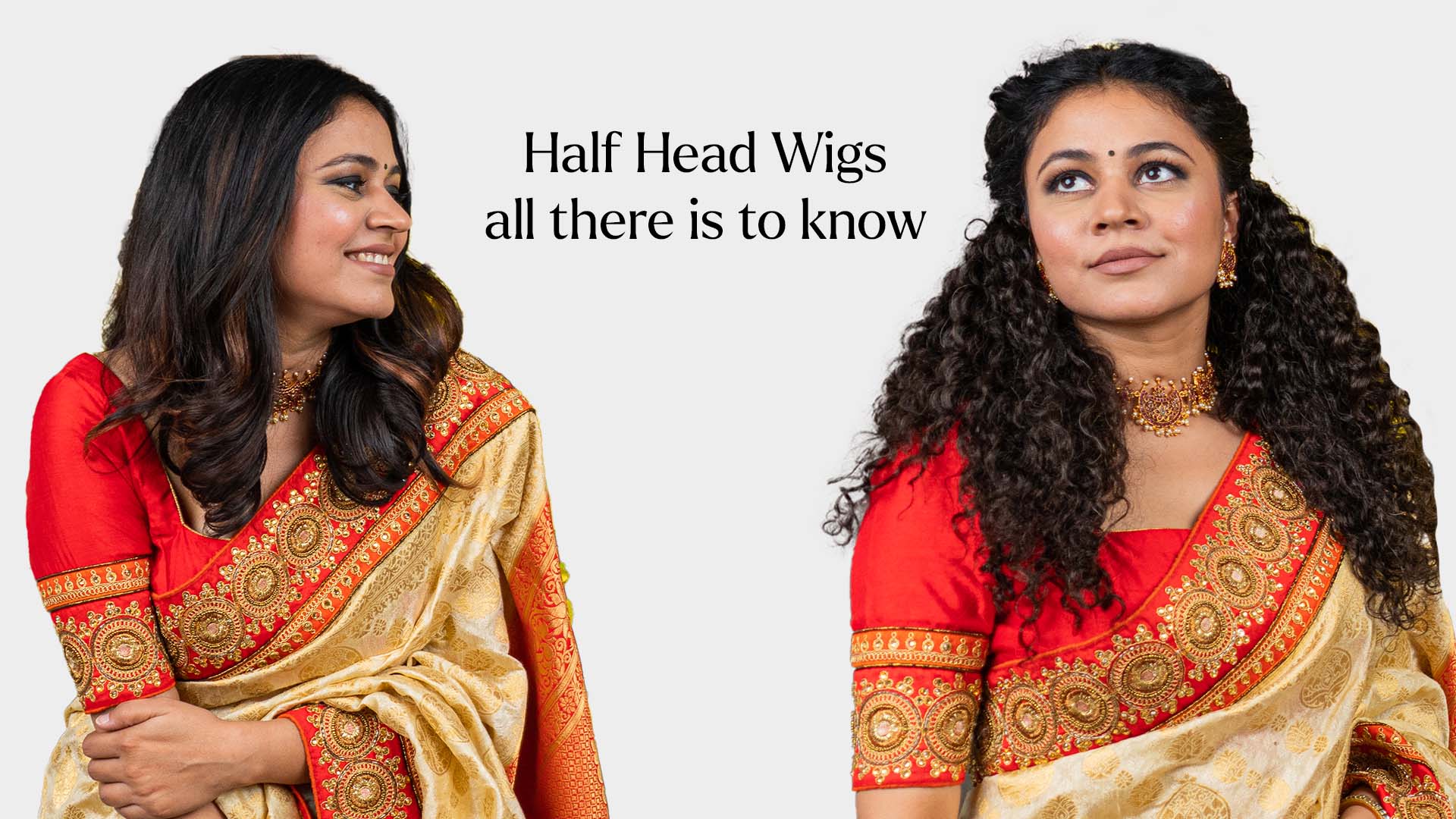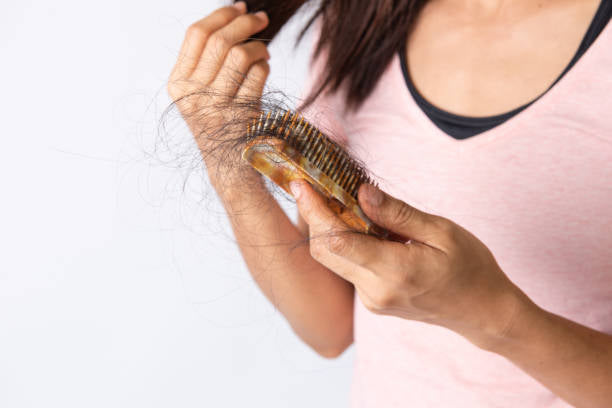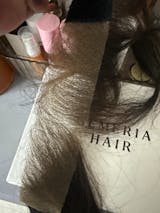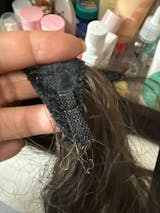Have you ever looked in the mirror and noticed a glimmer of silver amidst your once-vibrant hair? Grey hair is a natural part of the ageing process, but have you ever wondered why it occurs? In this comprehensive guide, we delve into the fascinating world of hair pigmentation, unravelling the intricate reasons behind the transformation of vibrant locks into shades of grey. Then we will also look at some tips and tricks to deal with this problem, when it occurs before age. Let's dive right in!
Understanding Hair Pigmentation: The Melanin Story

Hair colour is determined by a pigment called melanin, produced by specialised cells known as melanocytes. Melanin comes in two main types: eumelanin, responsible for dark colours like black and brown, and pheomelanin, responsible for red and blonde shades. The combination of these pigments produces the wide range of hair colours we see. As we age, the production of melanin gradually decreases, leading to the loss of colour in our hair.
The Role of Genetics: Inherited Greys

Genetics play a pivotal role in the timing and extent of greying. If your parents experienced premature greying, chances are you might too. Scientists have identified several genes linked to hair pigmentation, influencing when and how rapidly your hair turns grey. Genetic factors can also determine whether you'll experience a uniform distribution of grey hair or if it will appear in patches.
The Impact of Age: The Greying Clock
Age is a significant factor in the greying process. Most people notice their first grey strands in their mid-30s, with a noticeable increase by their 50s. This is due to the gradual decline of melanin-producing cells and the associated pigment reduction. The greying process is relentless, reflecting the natural passage of time.
Also Read: 10 Common Hair Problems and How to Solve Them
Oxidative Stress and Free Radicals: Ageing Culprits
The accumulation of free radicals in the body, often due to factors like stress, pollution, and poor diet, can accelerate the greying process. These molecules can damage melanocytes, leading to decreased melanin production and premature greying. Antioxidants, found in fruits, vegetables, and green tea, can help combat the damaging effects of free radicals.
The Link to Hydrogen Peroxide: The Chemical Culprit
Hydrogen peroxide, a natural compound produced by the body, can also contribute to greying. In young individuals, an enzyme called catalase breaks down hydrogen peroxide into harmless water and oxygen. However, as we age, catalase activity decreases, allowing hydrogen peroxide to accumulate and interfere with melanin production. This leads to the gradual loss of colour.
Medical Conditions and Lifestyle Factors: More Than Skin Deep
Certain medical conditions and lifestyle choices can hasten the greying process. Autoimmune disorders like vitiligo can cause loss of skin and hair pigmentation. Thyroid imbalances and certain vitamin deficiencies can also play a role. Smoking, excessive alcohol consumption, and poor nutrition can accelerate greying.
Also Read: 10 Ways to Achieve Smoother Hair: Your Guide to Effective Hair Care
Stress and Greying: The Mind-Body Connection

The age-old belief that stress can cause hair to turn grey is not entirely unfounded. Stress triggers the body's "fight or flight" response, releasing hormones that can affect melanin production. While stress might not be the sole cause of greying, it can certainly hasten the process. Managing stress through mindfulness, relaxation techniques, and physical activity can indirectly contribute to healthier hair.
Preventing Premature Greying: Ageing Gracefully
While greying is a natural process, certain lifestyle changes and precautions can help delay its onset:
Balanced Diet: Ensure your diet includes nutrients like vitamins B12, C, E, and biotin that support melanin production.
Stress Management: Practice relaxation techniques like yoga and meditation to minimise stress's impact on hair health.
Quit Smoking: If you smoke, quitting can improve overall health, including hair quality.
Hair Care: Avoid excessive use of heat styling tools and harsh chemicals that can damage hair.
Antioxidant-Rich Foods: Include foods high in antioxidants, like berries, spinach, and nuts, to combat oxidative stress.
Embracing the Transition: Celebrating Grey Hair
Grey hair is a natural part of life's journey, symbolising wisdom and experience. While the reasons behind greying are complex, understanding the science can help us appreciate the beauty of ageing gracefully. So, next time you spot a silver strand, remember that it's not just a change in colour but a reflection of your unique story.
What to Do When Hair Turns Grey Prematurely: Own Your Style

While grey hair often arrives with age, some people experience premature greying due to factors like genetics or medical conditions. Here's what you can do to embrace and own your silver locks with confidence:
- Rock the Natural Look: Many people choose to embrace their grey hair and let it shine. A natural approach can be liberating and stylish.
- Experiment with Styles: Grey hair offers a versatile canvas for various hairstyles and cuts. Try a new look to complement your unique shade.
- Consider Colouring: If you prefer to maintain your original colour, consider using hair dyes specifically formulated for grey hair.
- Use Color Enhancing Products: Products like shampoos and conditioners designed for grey hair can help maintain its vibrancy.
- Care for Your Hair: Keep your grey hair healthy and vibrant with proper care, including regular conditioning and limited heat styling.
Conclusion:
The transformation of hair from colourful hues to shades of grey is a natural phenomenon influenced by genetics, age, oxidative stress, and lifestyle choices. While the process can't be fully prevented, adopting a healthy lifestyle, managing stress, and practising good hair care can help delay greying. Embracing your silver strands with confidence can be a celebration of the passage of time and the wisdom it brings. Ultimately, the way you choose to navigate this journey is a personal choice that can empower you to embrace your uniqueness and age gracefully.
And of course, if nothing else works out and your hair has turned grey; you can opt for hair extensions and wigs. This will help you cover your ageing hair without having to change your natural hair. Again, this is a personal choice and you can choose not to cover them at all. It's your own CHOICE!


















